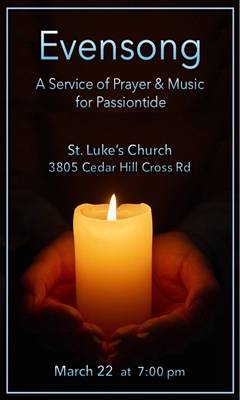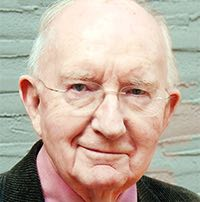It is early September 1933 and it has been decreed that I, on the cusp of five years old, should go to school. The great day comes. Fully equipped with pencil, eraser and slim notebook in which to draw, my mother and I set out for the parish school, only a short walk away.
Up the hill we go, in through a heavy iron gate, across a wide playground and into the school porch. My mother knocks on the schoolroom door, and Miss Buckley comes out. In that single moment, I am transformed from being a small and, for the most part, obedient boy with neatly combed hair and, so I am told, a cherubic countenance, into a bawling, wriggling, threshing creature whose cries, beginning as moans, increase to shrieks. I can only imagine my mother’s horror as she vainly tries to quiet this small fiend that has replaced her usually docile son.
Miss Buckley — Eleanor was her Christian name — stands calmly for a few minutes, watching this histrionic performance. Actually, as she does so, I will take the opportunity to describe her as she is remembered — with much appreciation and affection — across all of nine decades.
She is tall, nay, statuesque. After all, who is not statuesque to a small boy? Her hair is immaculately formed in a gleaming brown chignon. She has spectacles that have delicate gold chains from frame to ear, with matching gold earrings. Speaking of matching, on her wrist, complete with tiny lace handkerchief, is a gold watch. Her dress is a deep loden green, her graceful court shoes a rich brown.
In a moment chosen from long experience, Miss Buckley decides to end this tantrum, familiar to her from countless similar performances. Turning to my mother and speaking very quietly and calmly, she says, “Now Mrs. O’Driscoll, I think you may go home. Herbert and I will get along very well together.” My mother, wishing to be anywhere but in the presence of this small demon who had possessed her son, flees. Years later she told me that she was no further than the gate of the school property before my howls stopped abruptly. She did not dare to imagine how Miss Buckley had achieved this transformation.
We are left together in the small porch. Two things happen next. As with generations of screaming children on the first day of school, I realize the uselessness of my protest. Miss Buckley takes my hand and leads me into the schoolroom and across to a small desk in the front row. There I sit, my sobs slowly subsiding as she brings me the one thing in the world I am coming to desire — large slim books with coloured pictures. From that day forth there is not a protest or cry of any kind. I have discovered the world of school and find it magical.
However, if truth be told, I think I had also begun to fall in love with Miss Buckley. After all, how else would her memory remain so shimmeringly clear across nine decades?



